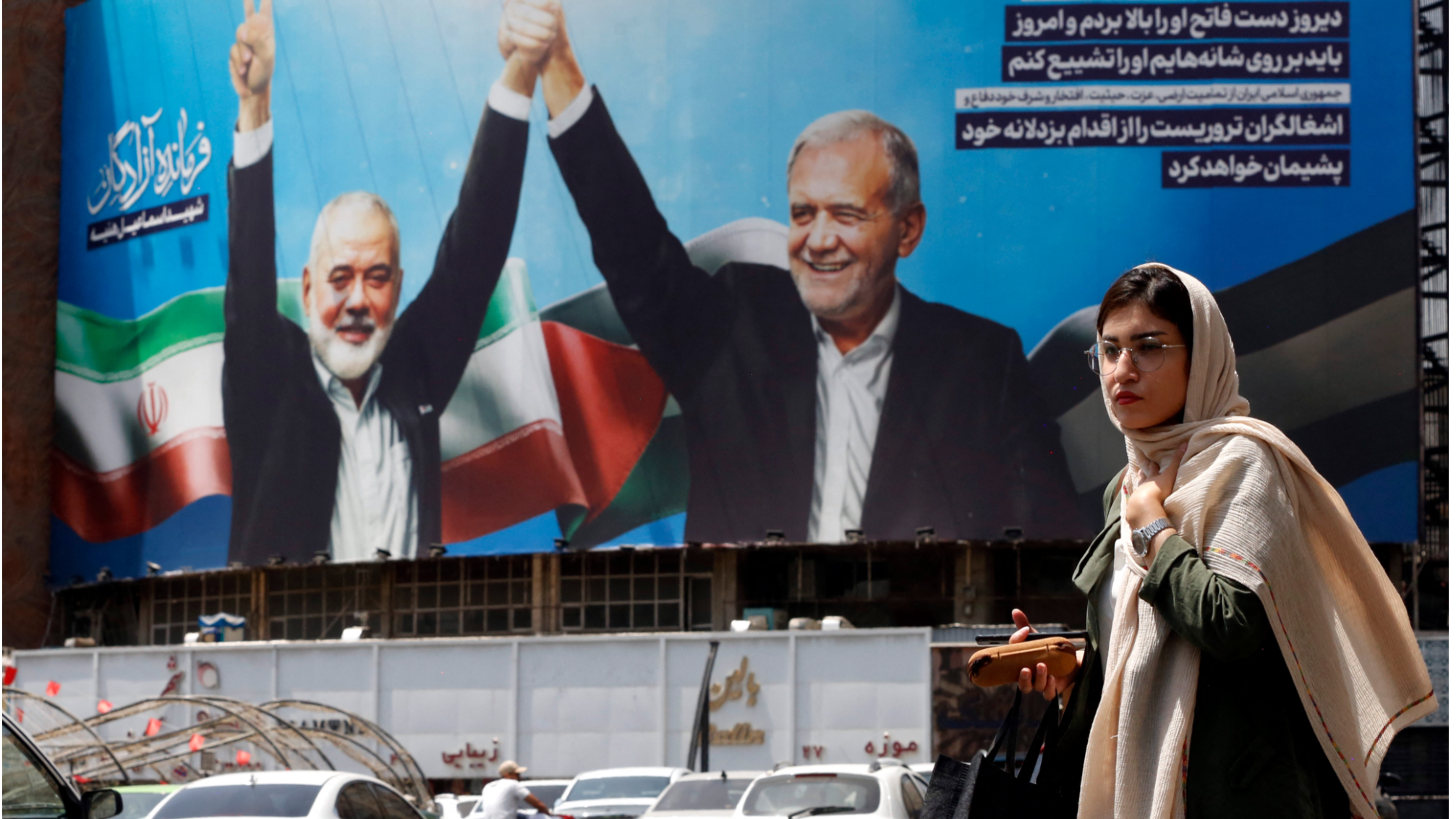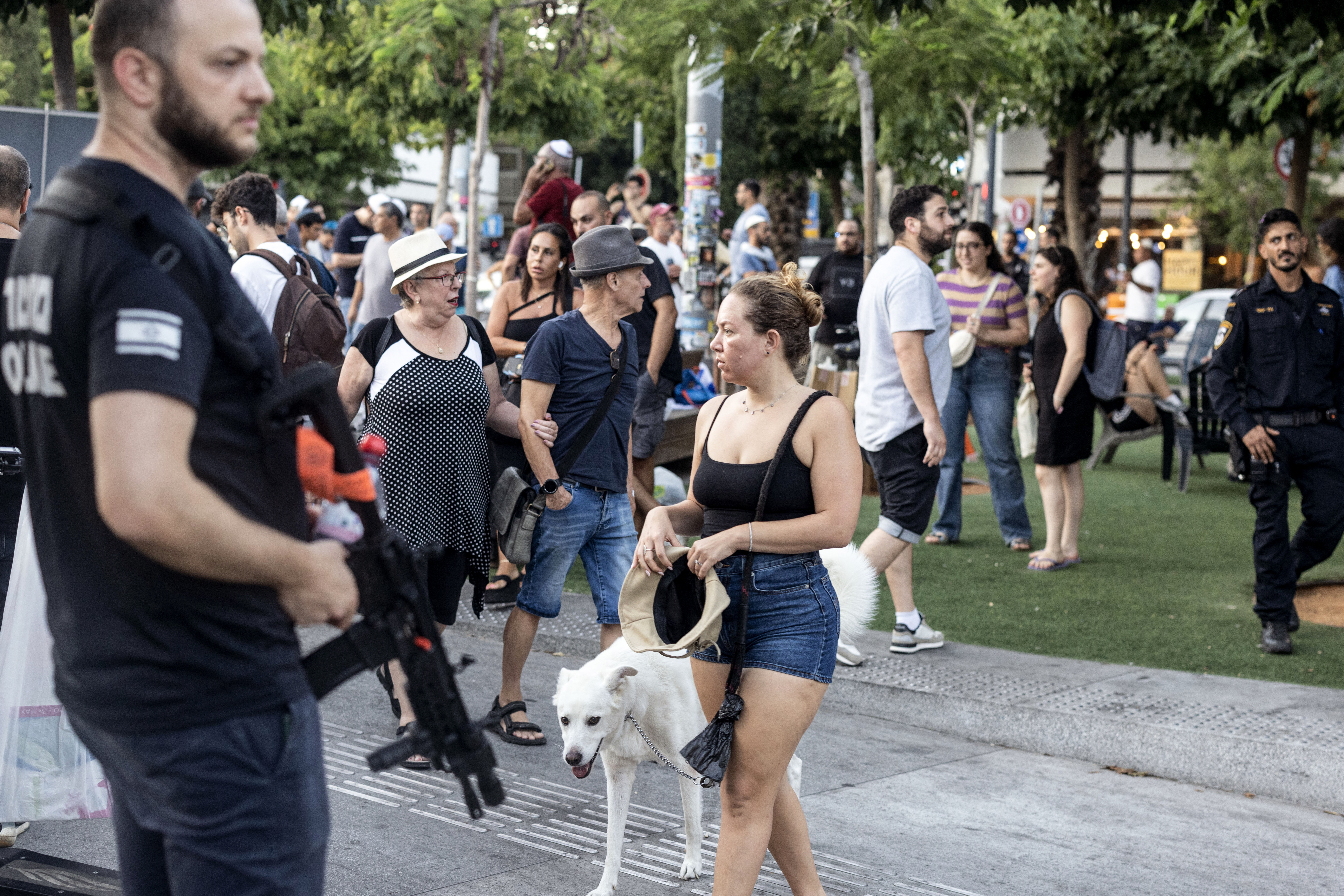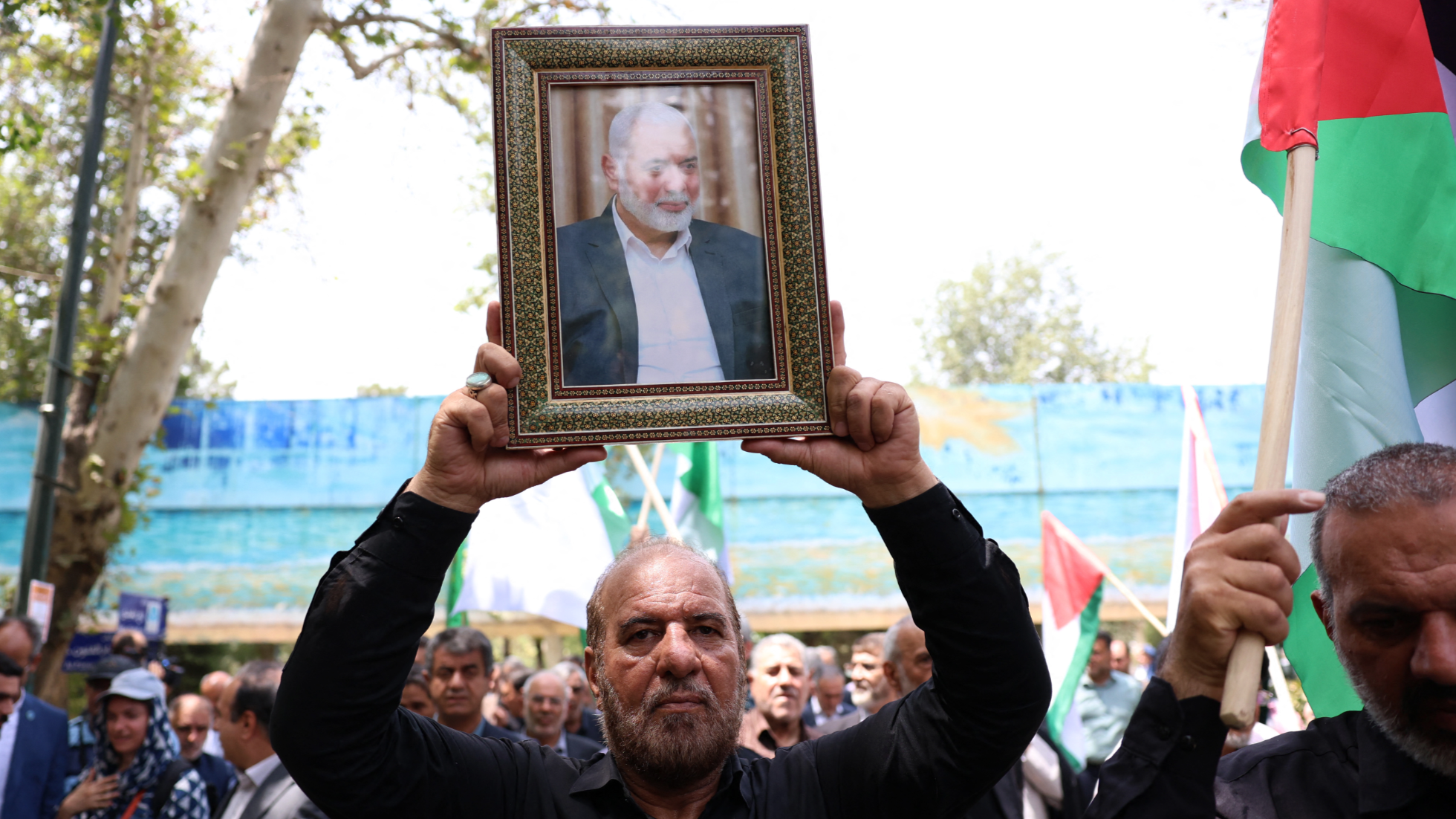
Iran and Hezbollah’s apparent restraint since Hamas leader Ismail Haniyeh’s assassination in Teheran underscores the region’s commitment to de-escalation unlike the Netanyahu government’s disinterest in diplomacy and has nothing to do with Washington’s show of force, analysts said.
They also said Iran and the Lebanese militant group — despite being painted as “rogue” by Israel and the United States — are also trying to put “an end to the ethnic cleansing and genocide of Palestinians” and urged Washington and Tel Aviv to halt behaviors that defy international consensus.
Various media outlets have reported that cease-fire talks are set to resume next week with an Israeli delegation in attendance.
Mehran Kamrava, a professor of government at Georgetown University in Qatar, said that Iran’s restraint “so far has nothing to do with the US show of force”.
ALSO READ: Iran says Hamas chief's assassination not possible without US support
On Aug 4, US media outlet Axios reported that US Secretary of State Antony Blinken told his G7 counterparts that Iran and Hezbollah may attack Israel in the next 24 to 48 hours.
Iran and Hezbollah had earlier vowed to respond to Haniyeh’s assassination, which they said was carried out by Israel.

While Iran’s acting foreign minister Ali Bagheri Kani told an emergency meeting of the Organization of Islamic Cooperation on Aug 7 that Iran has the right to self-defense, the joint communique of the 57-member Muslim bloc firmly stuck to its diplomatic tone.
The communique called for the “necessary diplomatic, legal and political measures to reverse the escalation in the region” and striving for a path towards regional and international peace and stability.
ALSO READ: Tense Israel in waiting as attack threat looms
When threatened in the past, Iran “has tended to double down,” Kamrava told China Daily.
Kamrava said there are several reasons for Iran’s restraint, but it is not because of “a supposed show of US strength, which has been quite minimal so far, or fears of an Israeli reprisal, which the Iranians fully expect and anticipate.
Another factor to keep in mind, he said, is that the Iranians “do not want an escalation of the conflict”.

Kamrava noted that one of the debates among Iranian policymakers right now was that those killed were not Iranian.
“It was a major intelligence failure but in military terms, it was a relatively minor attack, it was a targeted assassination and so Iran needs to come up with a proportional response,” said Kamrava.
ALSO READ: Iran files judicial case for Hamas chief's assassination, no one arrested yet
“The final factor, which we might want to consider is, in April, the Iranians first went to the United Nations, they asked the UN Security Council to condemn Israel’s attack against Iran and when the UN Security Council failed to act, that’s when the Iranians attacked,” he added.
Kamrava was referring to Iran’s response to an air attack that destroyed its consulate section in Damascus, Syria, and killed at least 13 people late in April.
It has been widely condemned as a violation of international law and Syrian sovereignty — and has been seen as a possible trigger for escalating regional tensions amid the humanitarian crisis in Gaza.
Kamrava said Iran’s current restraint may have been to gauge international support.
ALSO READ: Iran: Hamas chief assassination undermines regional, global stability
Rasha Al Joundy, a senior researcher at the Dubai Public Policy Research Centre, told China Daily that Iran “is gaining from this delay” and can show how much it has changed regarding its relations with Saudi Arabia and other countries in the region.
Al Joundy noted the Saudi Ministry of Foreign Affairs statement and the OIC meeting and final statement in support of Iran.
“This demonstration of solidarity with Iran after (Haniyeh’s assassination) gave diplomatic weight to Iran as a victim of aggression, not as a rogue state like Israel and the US like to paint Iran,” said Al Joundy.

She said Iran and the Gulf Cooperation Council countries — Saudi Arabia, the United Arab Emirates, Oman, Qatar, Kuwait, and Bahrain — do not want an all-out war, so the OIC meeting called on the UN Security Council to fulfill its role in managing conflicts.
She said that the Security Council was not doing this “due to the US backing of Israel”.
ALSO READ: Iran vows 'decisive' response to assassination of Hamas leader
Palestinian Presidential Spokesperson Nabil Abu Rudeineh said on Aug 8 that Israel has now entered the stage of being internationally isolated and rejected “thanks to its aggressive policies and total disregard of the United Nations resolutions and international law”, Palestine’s WAFA news agency reported.
He also slammed Israeli Finance Minister Bezalel Smotrich’s remarks that letting 2 million Palestinians in Gaza starve was “justified and moral”, as well as the Israeli Ministry of Foreign Affairs revoking the diplomatic status of Norway’s diplomatic mission operating in the Palestinian territories.
Abu Rudeineh slammed the measures as “provocative behaviors” intended to defy the international community.
“While the US wants to construct an alliance between its allies in the region against Russia and rising China, (Haniyeh’s assassination) demonstrated that this policy is failing and the region is committed to the de-escalation policy since China mediated to achieve it,” said Al Joundy.
READ MORE: Iran says Hamas chief killed by ‘short-range projectile’
“I believe the door was open for negotiations for Israel but Netanyahu’s goals are totally different than a cease-fire or even a peace agreement with Saudi Arabia.
“The balance of power and to change the landscape in Israeli territory is what he aims for and that will not be achieved diplomatically, is what he believes,” she added.
Mike Gu contributed to this story.


